Galactic Frontiers: A Collection of Space Opera and Military Science Fiction Stories Read online
Page 33
Most of the Ganog warriors had already shifted into assault form, becoming ten-metra-tall death machines. They’d overwhelmed countless species, but the aliens’ mechanized troops seemed to be holding their own--more than holding their own. Judging by their size in relation to the infantry near them, he’d guess them to be about eight metras tall. A few were down, but there were far more Ganog down, their smoking hulks scattered through the ruined city.
Takkar’s forces were not faring well.
A squadron of fighters screamed by, strafing the strider’s face again. It raised a ponderous claw to shield itself, and the fighters danced nimbly away. The strider bellowed at the fighters, the noise trumpeting through the city.
Every window, in every shop, shattered. Glass rained down throughout the city.
T’kon had no idea who these aliens were, or where they’d come from. There were dozens of races within the Imperium, and even more lurked on the fringes. So far as he knew, none had technology like this. All used a variation of Imperial tech, though every culture modified it in their own way.
The strider lurched forward another step, obliterating several buildings. Then it fired. A brilliant red beam burst from the cannon, washing over several city blocks. Everyone in those blocks died instantly, nothing but a blackened scar left to mark their passing. Two of the enemy mechs had been caught in the blast, along with a division of ground troops.
Thinking that perhaps he could intervene on the aliens’ behalf, T’kon moved back to the cube. Somehow, the strider was responding to commands. If he was right about those commands coming from the cube, all he had to do was remove it. It might not save the aliens, but it would make their defeat more costly for Takkar.
Shouts came from below, and booted feet thudded their way toward the ladder leading into the control room. Someone had found the hatch and come to investigate. He needed to get out of here, right now.
T’kon looked around, but there was no other way in or out of the room--except the viewport. He darted over to pick up the techsmith’s plasma blaster, aiming it at the joint where the thermaglass connected to the deresium housing. He raised the setting on the pistol and fired a continuous beam at the glass.
It took agonizing seconds to draw a molten circle around a large enough area, and by then the shouts were right below him. T’kon delivered a sharp kick to the viewport, and the section he’d cut out shot away. It was seized by the howling wind, which made the room frigid in the space of a heartbeat.
T’kon took a step backward, then ran at the hole. He dove through, even as a saurian head popped into view. The red-scale brought up a rifle to fire, but T’kon was already through by the time it discharged. He tumbled away from the viewport, landing in a heap atop a scaly ridge over the creature’s eye.
Chapter 8- Ship
T’kon ducked, narrowly avoiding another blast from the hole in the viewport he’d leapt through. He could make out a trio of furious saurians, and the first one was climbing out after him. The saurian tightened his grip on the planetstrider’s scaly hide, lining up a quick shot.
T’kon’s slug thrower kicked, and the saurian tumbled through the hole. He plummeted past, screaming wordlessly as the wind whipped his body toward the ground. The scream was inaudible long before impact.
This enraged the remaining saurians, who stopped trying to exit and started using the hole as cover. Shots lanced out, washing harmlessly over the planetstrider’s scales. T’kon ducked behind the ridgy fold, using it to shield him.
The stalemate could only end one way; the saurians could summon reinforcements, while he could not. The only reason he was still alive was the battle raging below. The instant that ended they’d finish him.
So how did one escape a situation like this? T’kon’s fur lightened to a wild blue. When he’d originally considered his escape, summoning his ship hadn’t been a possibility, because it couldn’t fit inside the narrow corridors. Now that the mound was gone, though, it might be possible.
T’kon keyed in the autopilot sequence on the keyboard mounted to his left forearm. A green light beeped, moving over a crude image of the city.
T’kon peered over the monster’s head, trying to catch sight of his transport. It was lost in the chaos, one ship among many. Would it even make it through the chaotic mess? He had no idea, and he had no other choice.
Either the autopilot safely guided his little ship to him, or he died.
He darted from cover, firing a quick shot at the saurians. They ducked behind cover, but at least they were keeping their heads down. He glanced back at the map on his wrist, smiling grimly as his ship approached.
It looked like this new alien species had been unprepared for the ferocity of a planetstrider. They were falling back, using the city for cover. The Imperial forces were pursuing them, leaving the planetstrider more or less by itself.
The little dot grew closer, slowing as it approached the strider. That would be it gaining altitude, which the scrolling text on the side of the screen confirmed.
The familiar howl of his ship’s engines overpowered the sound of the wind as the craft glided into sight. It was tiny, the smallest transport capable of warp travel--just a cockpit bolted onto a reactor, with a tiny locker to store gear.
The canopy raised as the vessel slowed, gliding to his position. Shots came from the saurians, scoring the already pitted metal on his right wing. T’kon darted from cover again, firing a few suppressive shots as he dove into the cockpit. The ship was already in motion before the canopy closed, dipping away from the planetstrider.
T’kon seized the controls, deactivating the autopilot. He dove straight for the ground, using the planetstrider’s leg as cover. If he was fortunate, the saurians would lose him. If he could reach the dust cloud along the ground, he might be able to get away.
The ship shed altitude, winging through a cluster of skyscrapers in the direction of the combat. Risky, but the odds of him losing pursuit were much higher in a chaotic battle. If he fled, odds were good he’d be picked up by a kill squad before he made the first outer marker.
No, he needed cover, whatever that entailed.
T’kon banked around a rusted spire, darting through a gaping hole where the wall had once been. A red light began flashing on his console, and he cursed again. Someone had locked onto him. He slammed against the harness as he executed a tight S maneuver, flying into an alley.
He flew low and fast, hoping for a glance at his pursuer. It was a sleek, black craft utilized by only one group: the clanguard. Evidently they’d taken his incursion personally.
They were gaining on him, their craft both more agile and better equipped. The fight could only end one way, unless he did something to change it.
He hazarded a look at the planetstrider. It was moving its arm into position, preparing to fire its cannon again. T’kon veered toward the projected path, trying to estimate were the beam would hit. If he misjudged the size, he’d be vaporized. He dropped beneath a steel girder, his ship jerking as the girder caught his wing.
It took precious seconds to right his course, and by then the saurians were in firing range. A stream of blue pulses shot from their craft, stitching a line toward T’kon. The last few shots hit his ship, sending a spray of shrapnel into the cockpit. It pinged off his armor, and he was thankful he was still wearing his helmet.
T’kon accelerated, juking around another building, then into another alley. The craft pursued. Above them, the planetstrider took another step, the ground thundering as its foot impacted with the force of a megabomb. Then the cannon began to fire.
“Come on, come on,” T’kon murmured. He accelerated, shooting up over a small building. A ruby beam cut a swathe through the city, its tail passing a few dozen meters from his ship.
The force of the blast knocked his craft forward, and he careened off a building in a shower of sparks. Both wings sheared off as the cockpit sailed into the side of the building. It shattered, peppering T’kon with thermaglass. He raise
d an arm to ward his face, bracing himself as the cockpit tumbled toward the ground. It landed in a heap, slamming into the side of a mostly intact wall.
T’kon stumbled free of the wreckage, grasping at his side. The crash had reopened the wound the guards had inflicted. He gritted his teeth, hobbling away as quickly as he could. The whine of engines came from behind him, and a hot rush of air swirled around him as the enemy craft moved into position to fire.
It was directly above him, and there was nowhere to go. He was too far from the nearest alley; his armor’s batteries were drained.
He was going to die.
A rocket streaked from the alleyway, sailing into the enemy ship’s engines. They exploded spectacularly, sending the cockpit spinning to the ground. It landed intact, but before either saurian could react a second rocket shot from the alley.
The resulting explosion left nothing but a smoking ruin.
T’kon fell to one knee, bracing himself as he panted. The pain was excruciating, and he longed to pass out--but if he did, he knew he’d likely never wake up again.
A small wheeled rocket platform zoomed out of the alley. Aluki was perched on it, grinning broadly in T’kon’s direction. “Mmm, get on. We need to get out of here before the elites figure out that their patrol is gone.”
Chapter 9- Choices
T’kon awakened by degrees, various competing aches dragging him back to consciousness. He was back in the room with the workbench, slumped against the far wall. His canteen had been left within easy reach, as well as a blanket that he’d evidently kicked off.
His armor had been neatly stacked in the corner, and a quick glance at the breastplate showed that it had been expertly repaired. He still wore his leathers, but those too had been cleaned.
How long had he been unconscious?
He stretched a shaking hand toward the canteen, noting how pale his fur was, and gulped down the water. He was panting after he’d finished, and set the canteen down, struggling to rise.
“Mmm, don’t move, don’t move,” Aluki said, waddling into the room. She pushed him gently back down against the wall.
He felt weak, and was unable to resist. “All right, all right,” he said, relaxing. “How long have I been unconscious?”
“Not long, just a few hours.” Aluki placed a hand on his neck. “Your pulse is steady. I think you’re well enough.”
“What happened after the battle with the new aliens?” T’kon asked. He badly wanted to get out there and examine the site, but knew it was impractical.
“The battle is still going on--well, the aftermath anyway.” She hopped up onto the stool, leaning her back against the workbench. Her big eyes blinked at him. “The strider finished off the resistance, but it looks like their fleet escaped.”
“What about their warriors fighting in the city?” T’kon pushed past a sudden wave of dizziness. “Did any survive?”
“Yes, but we’re in no shape to do anything about it.” Aluki pursed her broad lips, then grinned again. “Mmm, sleep. Rest for a few hours. I’ll get some opa root to dull the pain. A rust storm is washing over the city--probably started by the planetstrider.”
“That’s good. A storm will keep the Imperium from launching an immediate search. If the aliens are smart they’ll be able to hide, at least in the short term.”
“They’ll be caught eventually, unless someone were to help them,” Aluki suggested slyly.
T’kon gave her a grim smile. If they could reach these aliens, then maybe the situation could be salvaged. Maybe he could still get his revenge. “We will find them. And when we do, they will help us defeat Takkar.”
The story continues in the novel
Behind The Lines
About the Author, Chris Fox
By day I am an iPhone developer architecting the app used to scope Stephen Colbert’s ear. By night I am Batman. Ok maybe not. One can dream though, right?
I’ve been writing since I was six years old and started inflicting my work on others at age 18. By age 24 people stopped running away when I approached them with a new story and shortly thereafter I published my first one in the Rifter.
Wait you’re still reading?
Find Chris online: Facebook | Twitter | Amazon | Website
Books by Chris Fox
Void Wraith Trilogy
Ganog Wars
Deathless Series
Tombstone
Crimson Worlds Prequel Novella I
By Jay Allan
Chapter 1
2252 AD
Kelven Ridge
Delta Trianguli I
We were pinned down, bracketed by fire from two directions. Somebody screwed up; somebody really screwed the hell up. Now we had to clean up the mess. Now we had to get out of here alive.
I had no idea how we were going to manage that, though. I was crouched behind a slight ridge, and I’d swear I could feel the hyper-velocity rounds streaming by a centimeter over my back. That’s nonsense, of course. My armor was sealed tight, and I couldn’t feel anything but the cool metal on my slick, sweat-soaked skin. The first thing I felt from outside would tell me my suit was breached, and that would mean I had a few seconds left to live.
Tombstone was one of the most miserable hells where men have ever tried to live, and you could pass the time trying to count all the ways the planet could kill you. Heat, radiation, poisonous atmosphere – take your pick. Tombstone wasn’t its real name, of course, but that’s what the locals have been calling it since 85% of the first colonization party died in less than a month. The place was a nightmare, but the elements in the planet’s crust were worth a king’s ransom, so men were here to exploit that wealth. And we were here to defend it.
I’d drawn a hell of a mission for my first battle. We came in as reinforcements for depleted units already fighting here. Neither side really controlled the space around the planet, so we’d come in hot in fast assault ships and made a quick landing. The ride down had been a rough one; I was grateful the only thing I’d eaten for 36 hours had come intravenously…an empty stomach was a big plus.
The planet had frequent, unpredictable storms, especially in the upper atmosphere. Not storms like on Earth, but intense, violent, magnetic vortices, with 1,000 kph winds and radioactive metallic hale. Our landing AIs did their best to avoid the worst spots, but the disturbances were unpredictable, and some of our ships dropped right through one of the smaller storms, taking 15% losses before we even hit ground.
This wasn’t a normal battle or a smash and grab raid; the situation on Tombstone was unique. We’d had troops fighting here for ten years, almost since the initial colonization. In a few years the Third Frontier War would begin, and before it was over I would fight in massive battles I couldn’t have imagined, on worlds all across occupied space. But the engagement on Tombstone was one of those small, unofficial battles the Superpowers so often fought between declared wars.
The planet had been explored by multiple colonization groups more or less simultaneously. Both the Caliphate settlers and ours claimed they were first, and each regarded the other as an invader. The governments, greedy for the planet’s rare and valuable resources, backed their colonists’ claims, and so soldiers ended up here, fighting a seemingly endless struggle on one of the deadliest battlefields where men have ever tried to kill each other.
The diplomats and government types would say that the “situation” on Tombstone was not officially a war, but that was a bureaucrat’s distinction, meaningless to those sent here to fight. I doubt a bleeding Marine gasping a dying breath of toxic air drew any comfort from the limited status of the engagement. It did, however, starve us of the strength and supplies we needed to win. Neither the Alliance nor the Caliphate were quite ready for full-scale war, so both governments sent enough troops to keep the fight going, but too few to risk serious escalation. It made perfect sense to the politicians, if not to those sent here to fight and die to maintain a perverse status quo.
To a sane mind there we
re two choices: Fight to win, whatever the consequences, or negotiate and take the best deal you can make. But to those in government there was a third option – maintain a bloody stalemate, sending in just enough force to hold out and not enough to expand the conflict.
But the politics that led to my being here really didn’t matter. Not now. What mattered was getting out of this ravine – actually more of a gully – and doing it without getting blown to bits. We’d been out on a seemingly routine scouting mission. One of the mining operations had reported enemy activity in the area, and the captain sent out a patrol. My platoon was next up in the rotation, so we pulled the duty.
I’d been on planet for about a week, but I hadn’t seen any action yet…this was my baptism of fire. I’ve always thought it would have been easier to draw an assault for a first mission, hitting the ground somewhere and going right into combat without too much time to think about it instead of waiting around for the orders to suit up and go into battle. The idle time was tough, really tough. A long and amazing road lay ahead of me, full of achievement, struggle, and sacrifice. I’d live to wear a general’s stars one day and fight alongside friends and against enemies I couldn’t have even imagined then. But that was still years in the future – on Tombstone I was a raw private, and I was scared shitless.
When the word came down, I stripped and climbed into my armor, just as the rest of the platoon was doing. It takes long enough to suit up even when your hands aren’t shaking like mine were. The armor weighs a couple tons, and until the reactor is powered up it’s almost totally immobile in the rack. Once you’ve done the prep work and setup, you back into the thing and hold yourself in place while the front closes. It’s hard to keep yourself suspended in the open suit, but you only need to do it for a few seconds. I felt a little relief once my armor was sealed. At least it wasn’t so obvious how scared I was.
The thing that surprised me when I first put my armor on in training was how much it hurts. No one had ever mentioned that before. We’re Marines, and we’re supposed to be tough, I guess. So no one wants to admit they notice the pain when they get into their armor. Well, I’ll say it; it hurts like hell. The suit recycles your breath, your bodily wastes, your sweat. It monitors every metabolic function and administers nutrition, stimulants, and, if necessary, medications. There are monitors and probes and intravenous links that all attach when you close your armor. And most of them hurt going in.

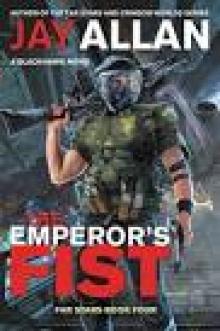 The Emperor's Fist
The Emperor's Fist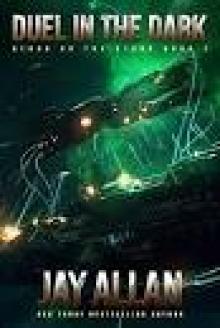 Blood on the Stars Collection 1
Blood on the Stars Collection 1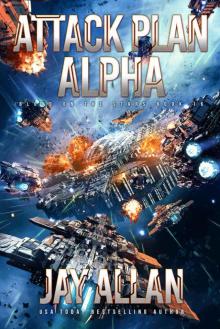 Attack Plan Alpha (Blood on the Stars Book 16)
Attack Plan Alpha (Blood on the Stars Book 16)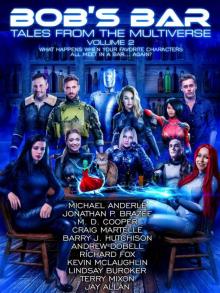 BOB's Bar (Tales From The Multiverse Book 2)
BOB's Bar (Tales From The Multiverse Book 2)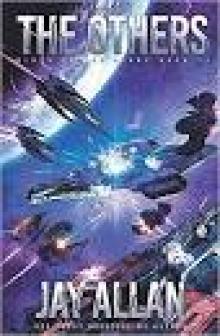 The Others
The Others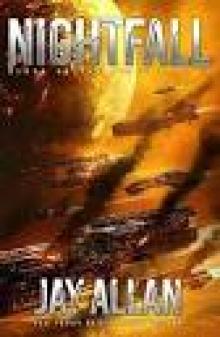 Nightfall
Nightfall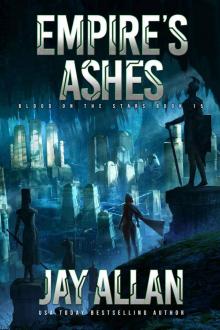 Empire's Ashes (Blood on the Stars Book 15)
Empire's Ashes (Blood on the Stars Book 15)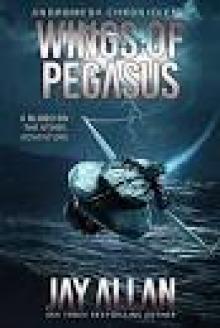 Wings of Pegasus
Wings of Pegasus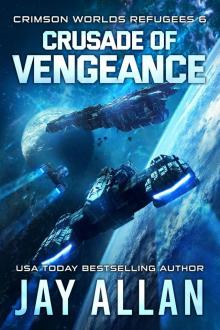 Crusade of Vengeance
Crusade of Vengeance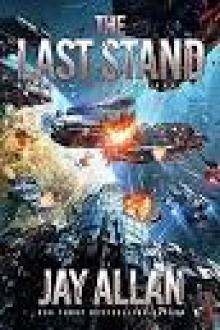 The Last Stand
The Last Stand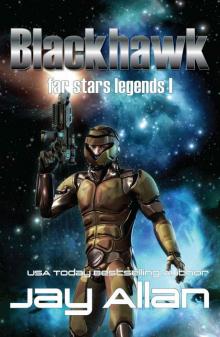 Blackhawk: Far Stars Legends I
Blackhawk: Far Stars Legends I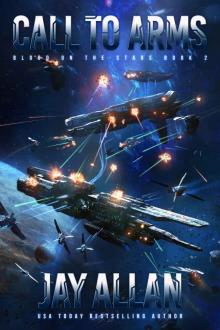 Call to Arms: Blood on the Stars II
Call to Arms: Blood on the Stars II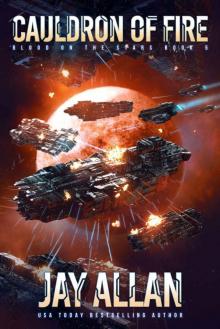 Cauldron of Fire (Blood on the Stars Book 5)
Cauldron of Fire (Blood on the Stars Book 5)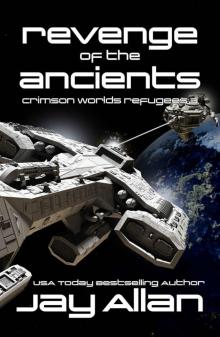 Revenge of the Ancients: Crimson Worlds Refugees III
Revenge of the Ancients: Crimson Worlds Refugees III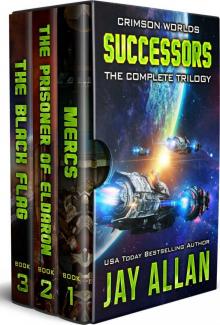 Crimson Worlds Successors: The Complete Trilogy
Crimson Worlds Successors: The Complete Trilogy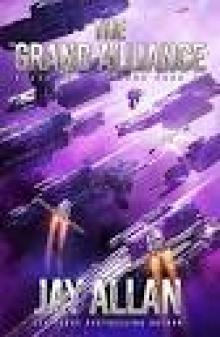 The Grand Alliance
The Grand Alliance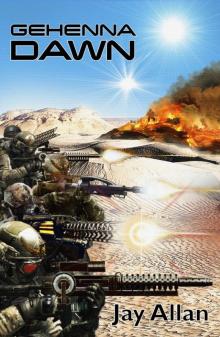 Portal Wars 1: Gehenna Dawn
Portal Wars 1: Gehenna Dawn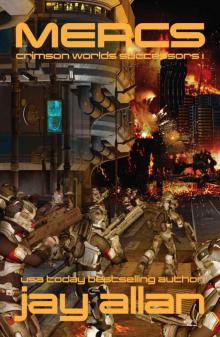 MERCS: Crimson Worlds Successors
MERCS: Crimson Worlds Successors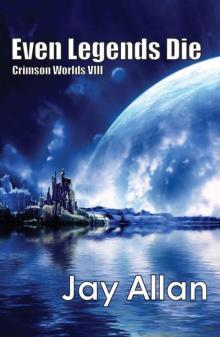 Crimson Worlds: 08 - Even Legends Die
Crimson Worlds: 08 - Even Legends Die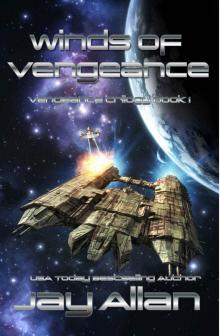 Winds of Vengeance
Winds of Vengeance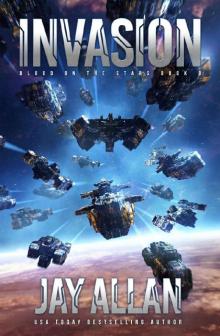 Invasion (Blood on the Stars Book 9)
Invasion (Blood on the Stars Book 9)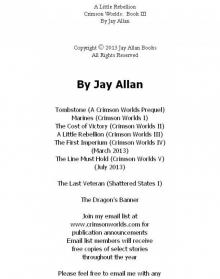 A Little Rebellion (Crimson Worlds III)
A Little Rebellion (Crimson Worlds III)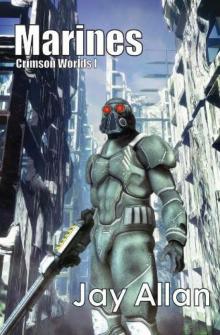 Marines
Marines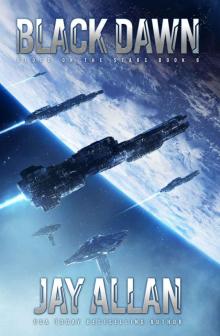 Black Dawn (Blood on the Stars Book 8)
Black Dawn (Blood on the Stars Book 8)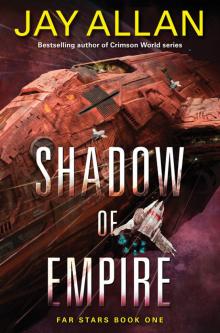 Shadow of Empire
Shadow of Empire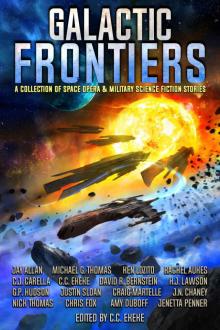 Galactic Frontiers: A Collection of Space Opera and Military Science Fiction Stories
Galactic Frontiers: A Collection of Space Opera and Military Science Fiction Stories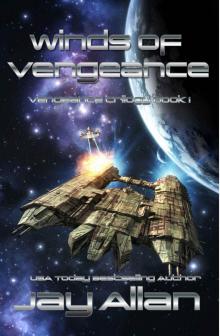 Winds of Vengeance (Crimson Worlds Refugees Book 4)
Winds of Vengeance (Crimson Worlds Refugees Book 4)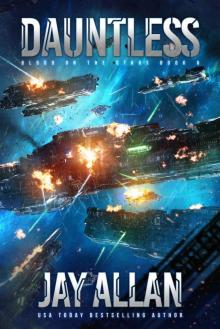 Dauntless (Blood on the Stars Book 6)
Dauntless (Blood on the Stars Book 6)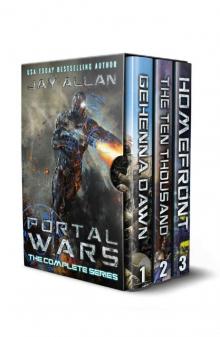 Portal Wars: The Trilogy
Portal Wars: The Trilogy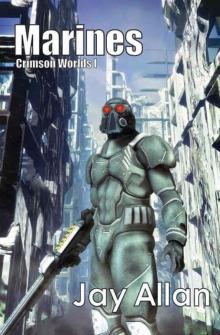 Marines cw-1
Marines cw-1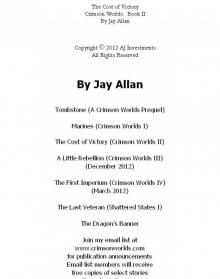 The Cost of Victory
The Cost of Victory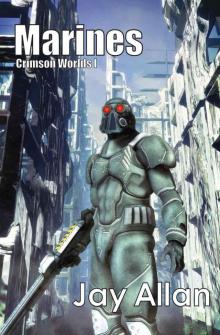 Marines (Crimson Worlds)
Marines (Crimson Worlds)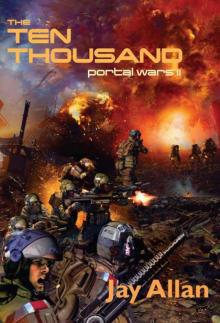 The Ten Thousand: Portal Wars II
The Ten Thousand: Portal Wars II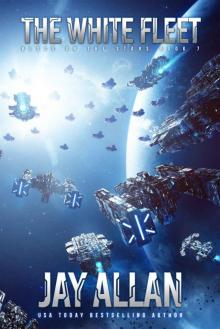 The White Fleet (Blood on the Stars Book 7)
The White Fleet (Blood on the Stars Book 7)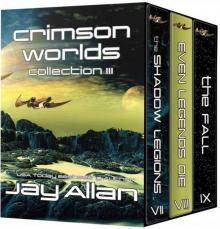 Crimson Worlds Collection III
Crimson Worlds Collection III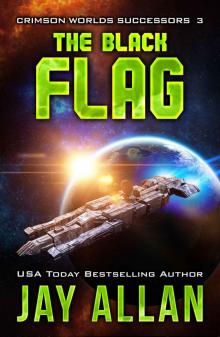 The Black Flag (Crimson Worlds Successors Book 3)
The Black Flag (Crimson Worlds Successors Book 3)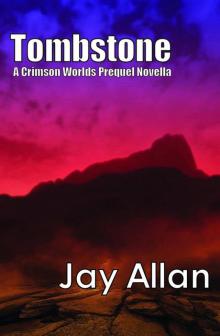 Tombstone
Tombstone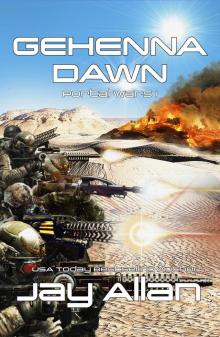 Gehenna Dawn
Gehenna Dawn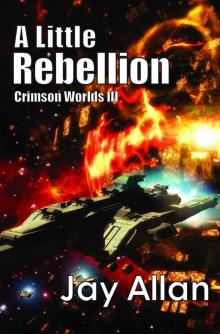 A Little Rebellion (Crimson Worlds)
A Little Rebellion (Crimson Worlds)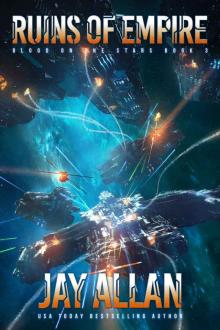 Ruins of Empire: Blood on the Stars III
Ruins of Empire: Blood on the Stars III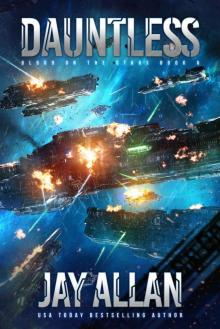 Dauntless
Dauntless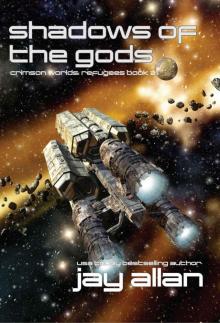 Shadows of the Gods: Crimson Worlds Refugees II
Shadows of the Gods: Crimson Worlds Refugees II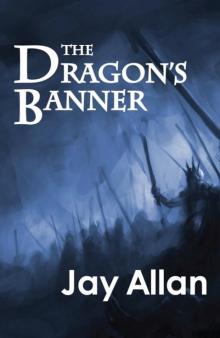 The Dragon's Banner
The Dragon's Banner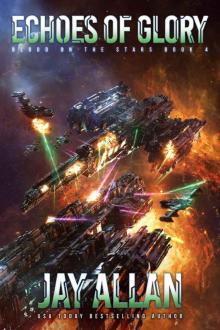 Echoes of Glory (Blood on the Stars Book 4)
Echoes of Glory (Blood on the Stars Book 4)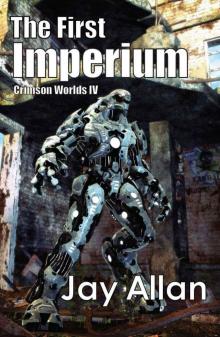 Crimson Worlds: 04 - The First Imperium
Crimson Worlds: 04 - The First Imperium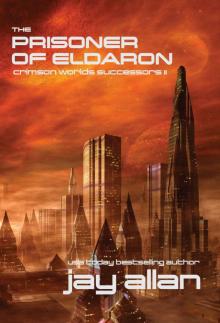 The Prisoner of Eldaron: Crimson Worlds Successors II
The Prisoner of Eldaron: Crimson Worlds Successors II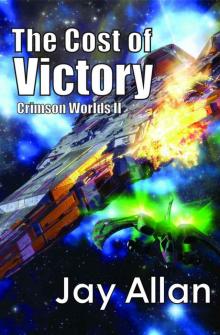 The Cost of Victory (Crimson Worlds)
The Cost of Victory (Crimson Worlds)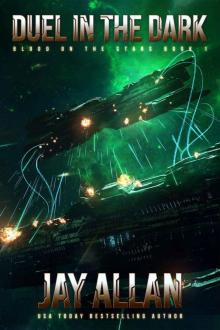 Duel in the Dark: Blood on the Stars I
Duel in the Dark: Blood on the Stars I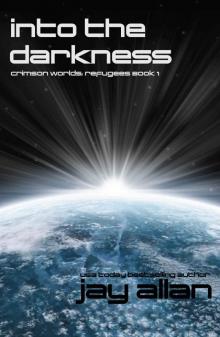 Into the Darkness: Crimson Worlds Refugees I
Into the Darkness: Crimson Worlds Refugees I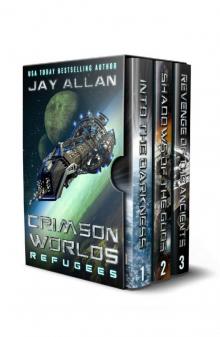 Crimson Worlds Refugees: The First Trilogy
Crimson Worlds Refugees: The First Trilogy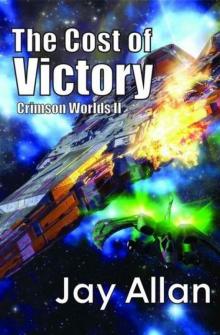 The Cost of Victory cw-2
The Cost of Victory cw-2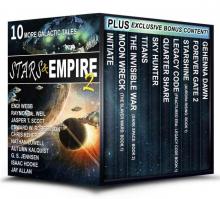 Stars & Empire 2: 10 More Galactic Tales (Stars & Empire Box Set Collection)
Stars & Empire 2: 10 More Galactic Tales (Stars & Empire Box Set Collection)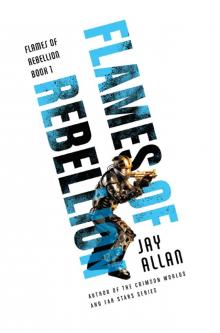 Flames of Rebellion
Flames of Rebellion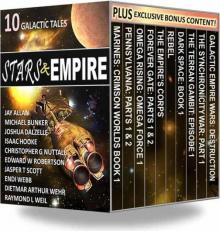 Stars & Empire: 10 Galactic Tales
Stars & Empire: 10 Galactic Tales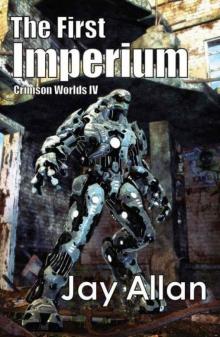 The First Imperium cw-4
The First Imperium cw-4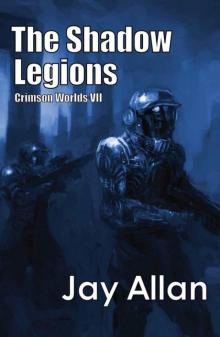 Crimson Worlds: 07 - The Shadow Legions
Crimson Worlds: 07 - The Shadow Legions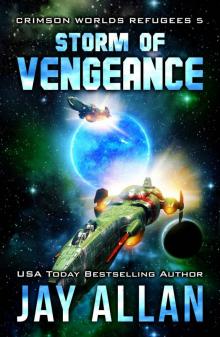 Storm of Vengeance
Storm of Vengeance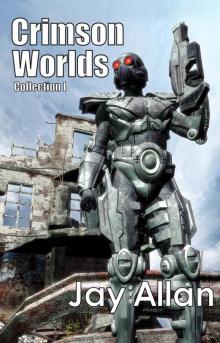 Crimson Worlds Collection I
Crimson Worlds Collection I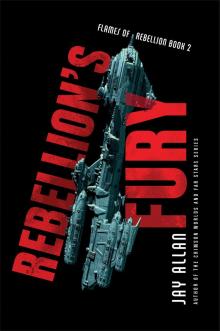 Rebellion's Fury
Rebellion's Fury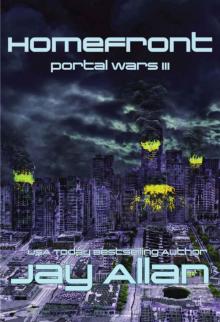 Homefront: Portal Wars III
Homefront: Portal Wars III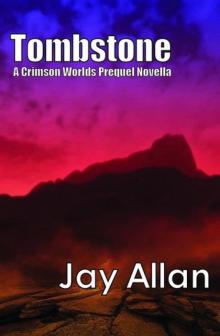 Tombstone (crimson worlds)
Tombstone (crimson worlds)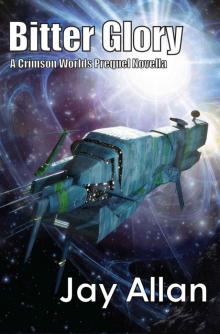 Crimson Worlds: Prequel - Bitter Glory
Crimson Worlds: Prequel - Bitter Glory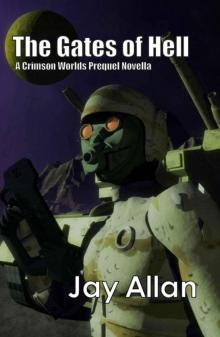 Crimson Worlds: Prequel - The Gates of Hell
Crimson Worlds: Prequel - The Gates of Hell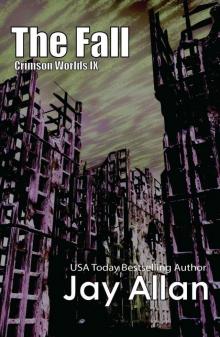 The Fall: Crimson Worlds IX
The Fall: Crimson Worlds IX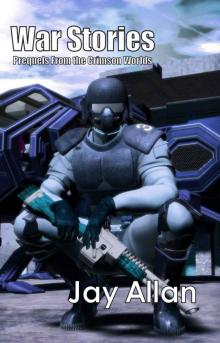 Crimson Worlds: War Stories: 3 Crimson Worlds Prequel Novellas
Crimson Worlds: War Stories: 3 Crimson Worlds Prequel Novellas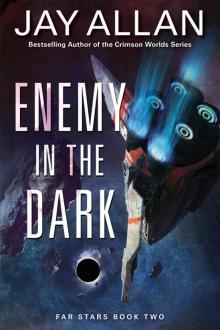 Enemy in the Dark
Enemy in the Dark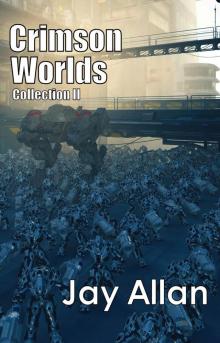 Crimson Worlds Collection II
Crimson Worlds Collection II